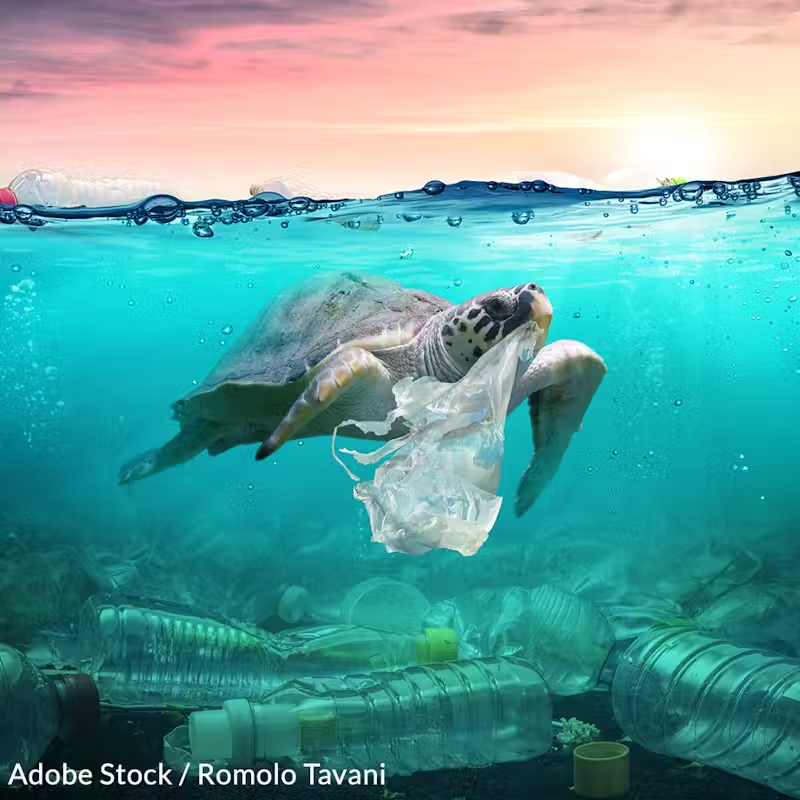Make Producers Pay For Their Pollution!
12,596 signatures toward our 50,000 Goal
Sponsor: The Rainforest Site
An Extended Producer Responsibility Law (EPR) will keep the biggest producers of non-recyclables responsible for that waste.

Almost anything you buy today, and everything you buy online, comes in a package. Some of those packages are recyclable and some are not. Either way, once you throw it in the right bin, it's the responsibility of the municipal waste program to figure out where it goes next.
According to Environmental Protection Agency data, packaging made up 82.2 million tons of trash 2018, nearly one-third of all municipal solid waste. And that number has only grown since1.
The fact is, it's often cheaper for companies to rely on cheap plastic packaging than sourcing recycled products, meaning every single purchase contributes to pollution and greenhouse gases2.
Federal and state lawmakers in the U.S. are now proposing bills to make companies pay for managing the empty soda bottles, candy wrappers, cereal boxes and other packaging that they produce. These fees could in turn help pay for curbside collection and sorting infrastructure. They may also convince companies to design new recyclable packaging3.
Maine Governor Janet Mills has signed the nation's first extended producer responsibility (EPR) law, effectively holding corporations accountable for the packaging waste they create. Now, nearly a dozen more states are on track to follow Maine's lead4.
An EPR policy "puts the financial burden of plastic pollution back on the manufacturers who generate it and profit from it," said Sen. Tom Udall (D., N.M.), who this year introduced a bill that would make companies pay to collect and process waste3.
"Maybe companies won't be inclined to ship you something tiny in a box wrapped in another box, all stuffed with plastic bags, because they'll have to pay for that, not somebody else," says Sarah Nichols of the Natural Resources Council of Maine. "It really puts the responsibility where it belongs5."
Federal legislation would go even further in championing this much-needed course of action. It's time the country's leading producers of pollution take responsibility. Sign the petition below and demand the EPA draft legislation for a national extended producer responsibility policy.
- United States Environmental Protection Agency (28 January 2021), "Containers and Packaging: Product-Specific Data."
- Jillian Ambrose, The Guardian (13 October 2019), "War on plastic waste faces setback as cost of recycled material soars."
- Saabira Chaudhuri, Wall Street Journal (5 December 2020), "One Answer to America's Recycling ProblemsMake Big Brands Pay."
- Janelle Nanos, Boston Globe (19 July 2021), "."
- Charlie Eichacker, WBUR News (16 July 2021), "Maine Becomes First State To Make Businesses Pay For Packaging Waste."
The Petition:
To the Administrator of the Environmental Protection Agency,
Ever since China closed its borders to foreign refuse, our country has seen a deluge of trash in its landfills. And much of it comes from non-recyclable packaging.
More than 80 million tons of packaging are trashed every year in the U.S., contributing to pollution, adding to greenhouse gases, and putting the heath of people and animals at risk.
With an extended producer responsibility (EPR) policy, like that recently implemented in Maine and seen in many other countries around the world, the financial burden of plastic pollution is put back on the manufacturers who generate it and profit from it.
An EPR policy will help keep America beautiful, bring responsibility and integrity back to industry, and to protect the lives of those who live here.
I demand you take a stand for current and future Americans by immediately drafting an extended producer responsibility policy.
Sincerely,